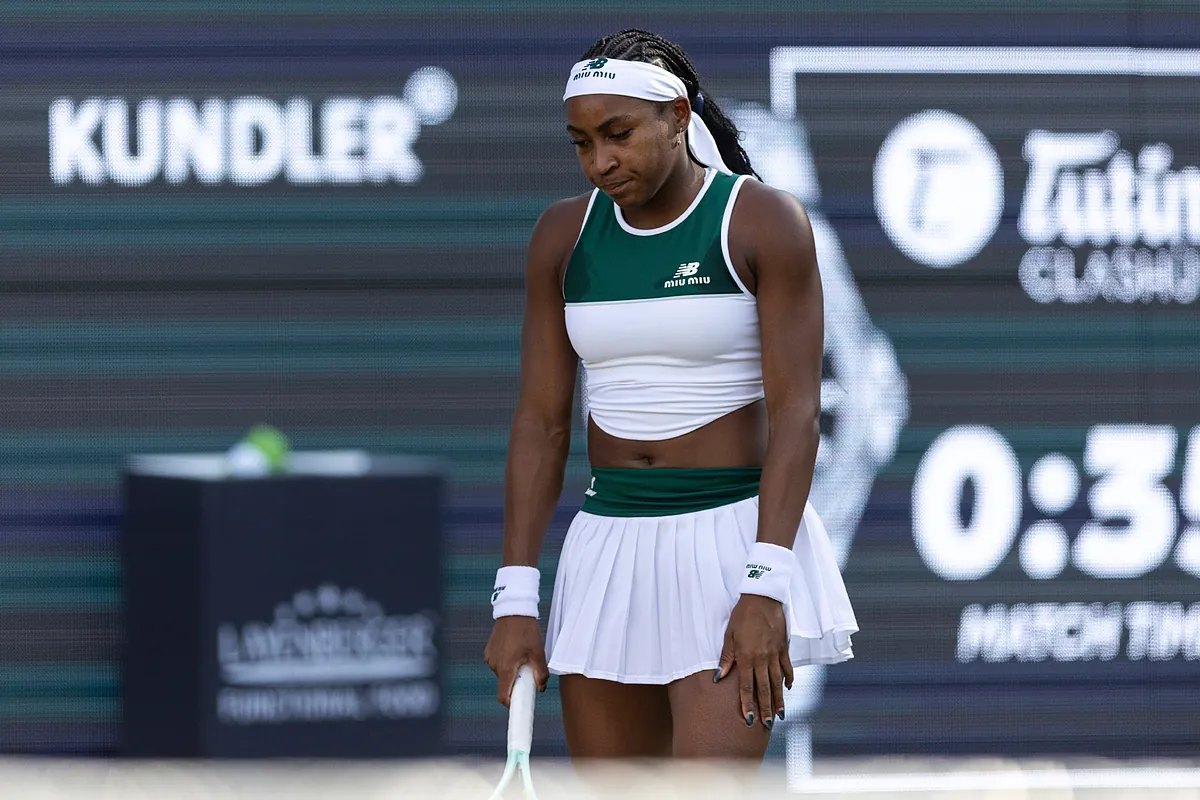

Coco Gauff has joined the growing list of top-level tennis players calling out the mental abuse and harassment athletes face in today’s digital age as the World No. 2 reveals the scale of disturbing messages she and her boyfriend have received online.
It’s abuse she says is escalating towards her and Jalen Sera as she spoke ahead of her opening match at the Berlin Ladies Open. The 21-year-old U.S. star, fresh off her French Open title win, did not hold back.
Coco Gauff seemly throws shade over Roland Garros trophy
“It’s the worst you can get. Death threats, to your family, to yourself,” Gauff said. “I’ve had people DM my boyfriend and friends about it. Racist comments, like all you can imagine.
“Nudity, things like that. It’s a gross kind of thing that we have going on in tennis.”
Gauff‘s press conference came just days after her shocking first-round loss to Xinyu Wang, a disappointing contrast to her dominant clay court campaign where she defeated Aryna Sabalenka in the final, but it was not the loss that made headlines with this revelation.
And she is not the only player speaking out as the World No. 3, Jessica Pegula, recently used her platform to highlight the same toxic behavior after receiving a stream of vile messages following her quarterfinal loss at Roland Garros.
“Every person on tour deals with it. It’s so bad,” Pegula wrote on Instagram. “Those are just really small snippets.
“I get told my family should get cancer and die from people on here on a regular basis. Absolutely crazy.”
The abuse isn’t new and despite high-profile statements from top players, little has changed. Based on Emma Raducanu‘s experience with a stalker, it could be getting worse.
A man accused of stalking the British tennis star was denied entry to Wimbledon ahead of the 2025 edition of the tournament, despite a restraining order being in place.
The person had previously followed the 22-year-old to four consecutive tournaments and left her in tears when he appeared at the Dubai Tennis Championships as recently as February.
“I saw him in the first game of the match,” Raducanu said at the time. “And I was like, ‘I don’t know how I’m going to finish.’
“I literally couldn’t see the ball through tears. I could barely breathe. Since that incident I have definitely got increased attention and greater security.
“I’m always now very aware and not necessarily doing things on my own any more. I’m always with someone and always being watched.”
How is the WTA responding to abuse?
The scope of the issue is staggering. In 2024 alone, over 8,000 abusive or threatening messages were publicly sent to 458 tennis players. Even more striking is that just five WTA athletes accounted for over a quarter of that abuse.
According to Reuters, nearly half of all social media abuse aimed at tennis players is traced back to angry gamblers. In response, monitoring has expanded across 39 languages as part of a broader initiative by the WTA, ITF, and Grand Slam bodies.
One key development has been the implementation of the Signify Group’s Threat Matrix, an AI-driven monitoring service launched in January 2024. The platform is designed to identify and filter abusive content directed at players across digital platforms.
“It’s something that we have to keep bringing awareness to,” Gauff said. “I would love for some of the social media platforms to get involved.
“Not only when it comes to tennis players. Influencers, other athletes, they all get these comments, so it’s something that can be addressed.”
This news was originally published on this post .





Be the first to leave a comment